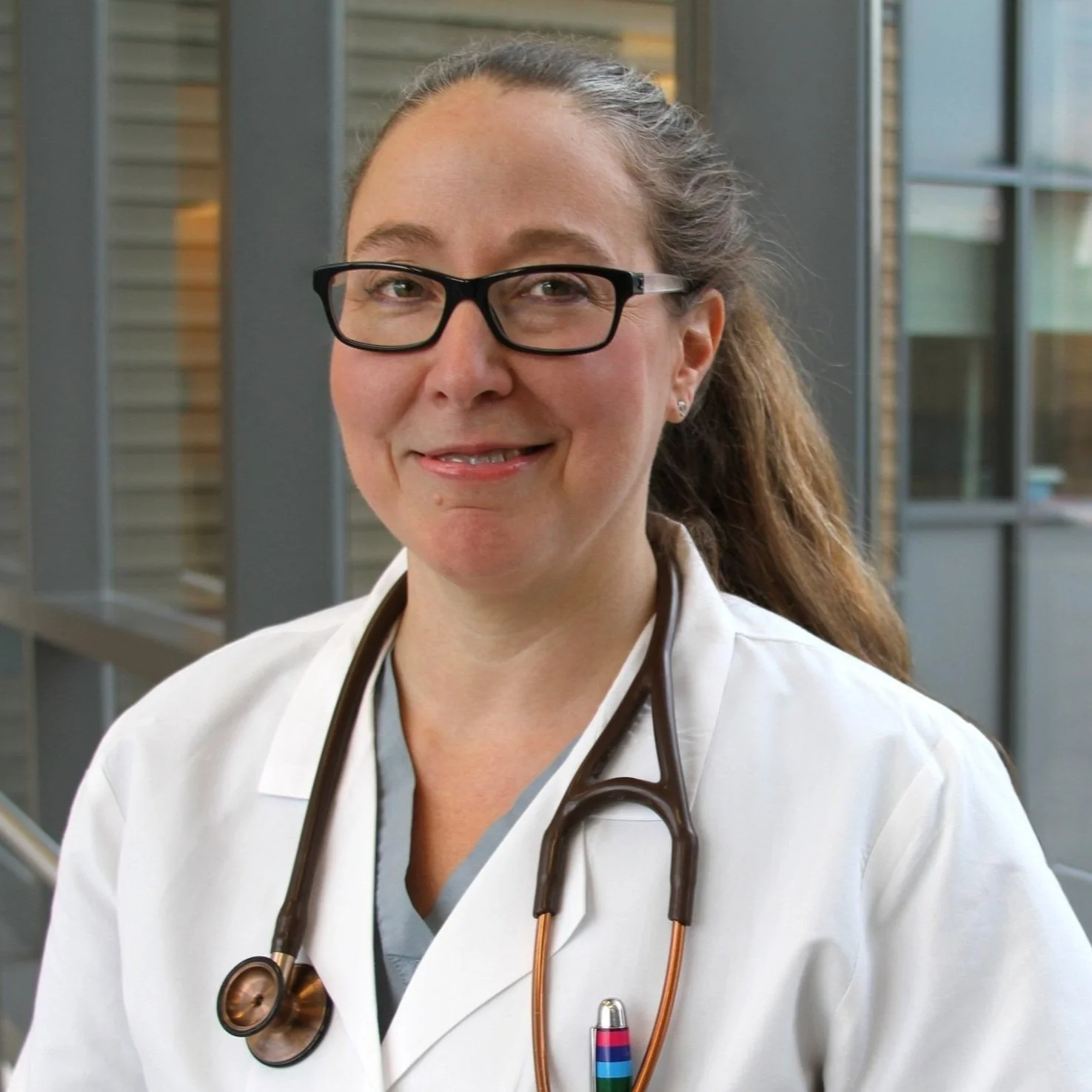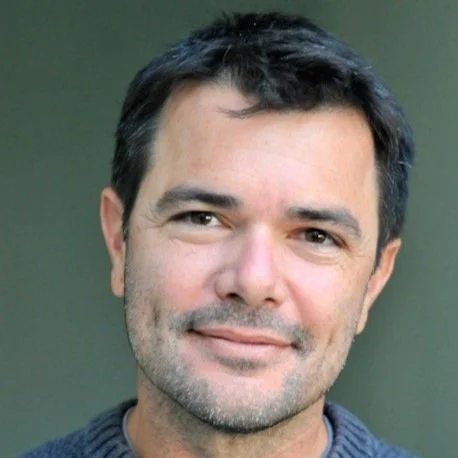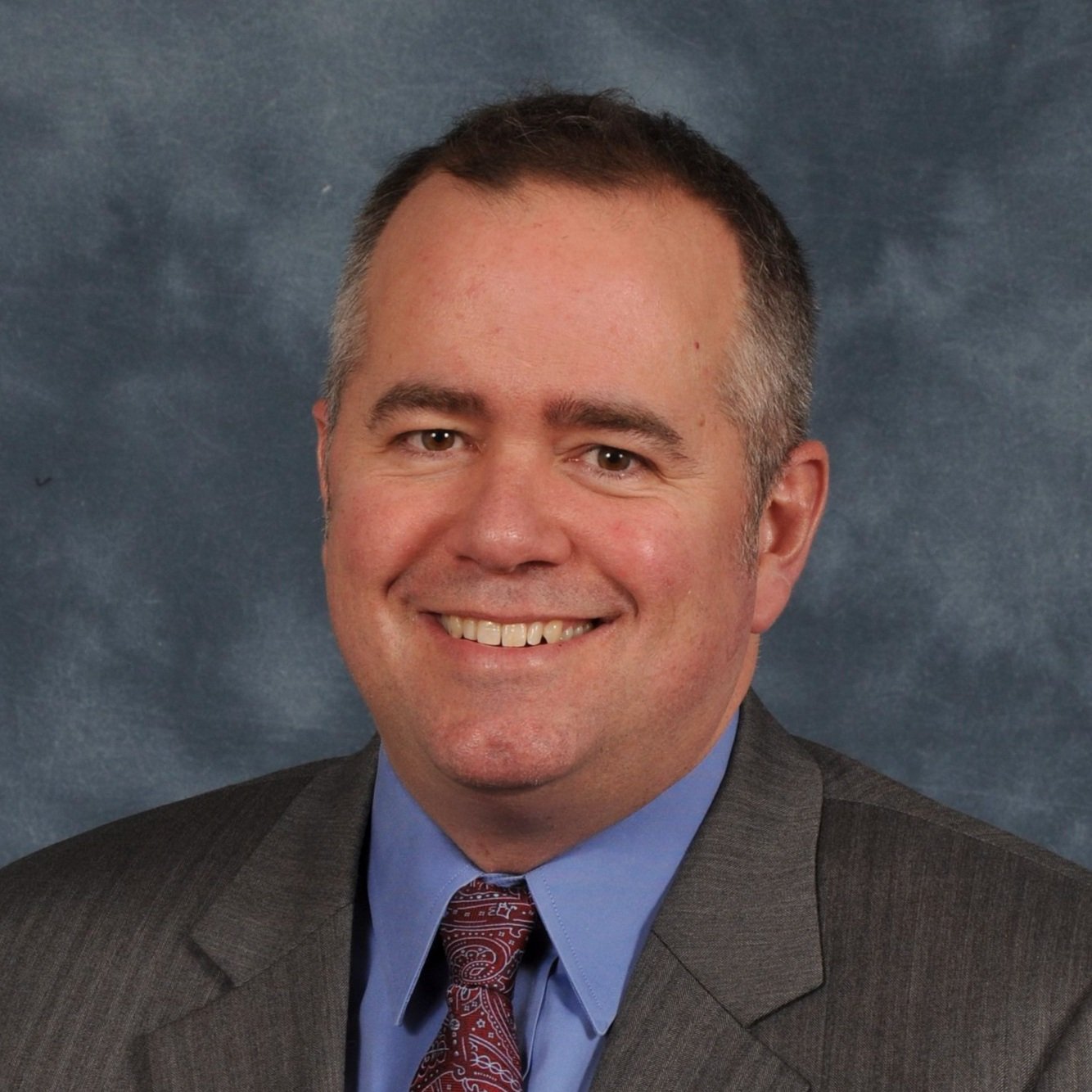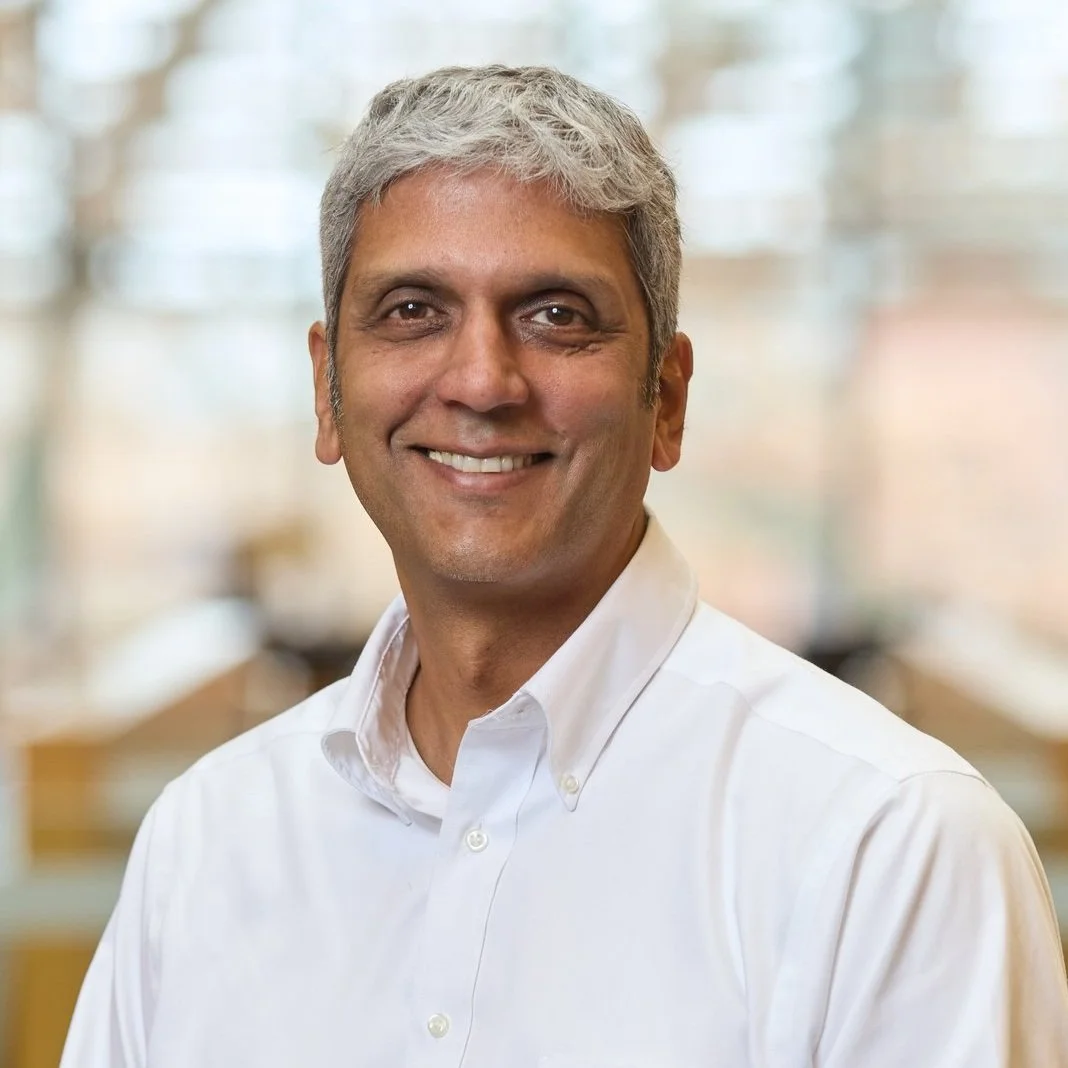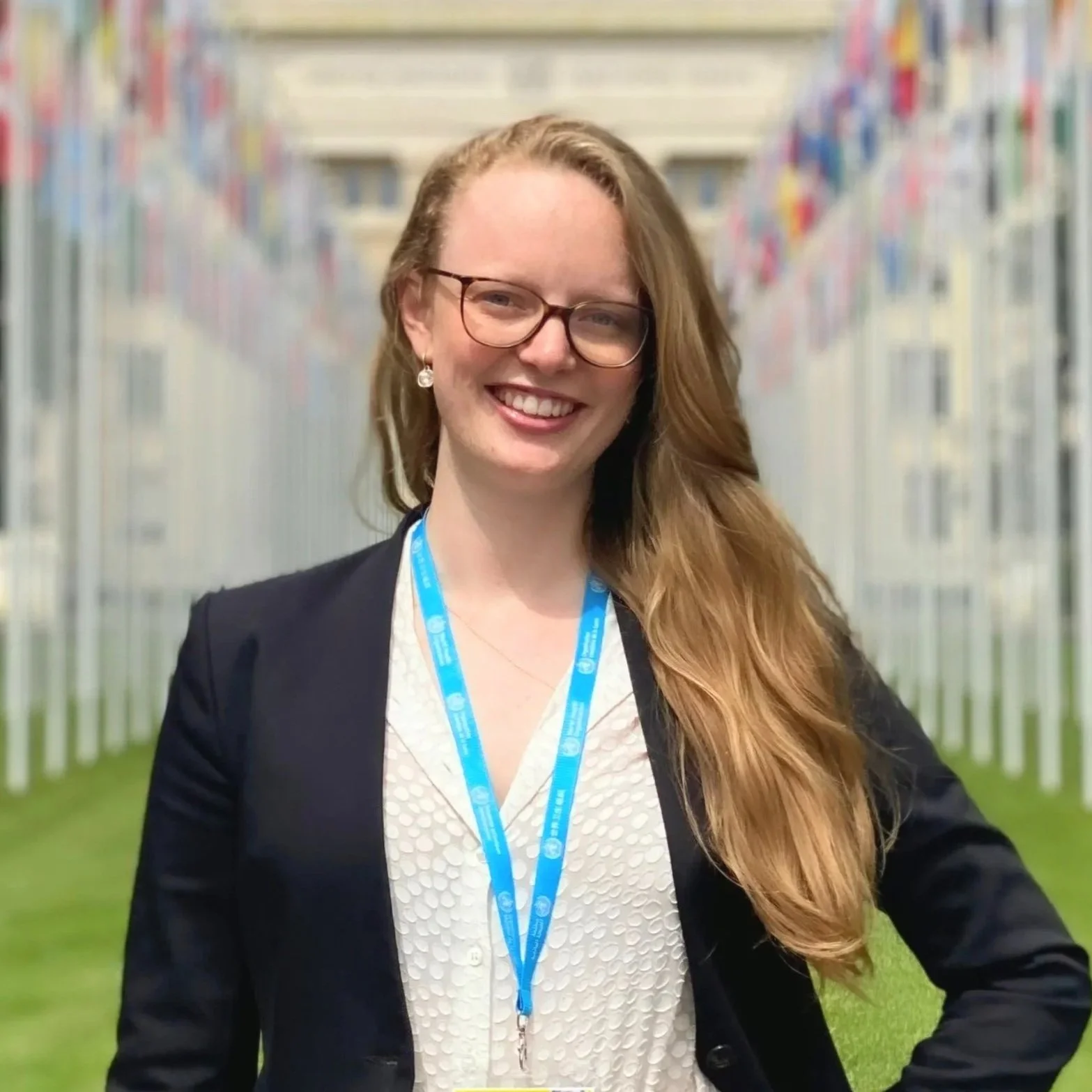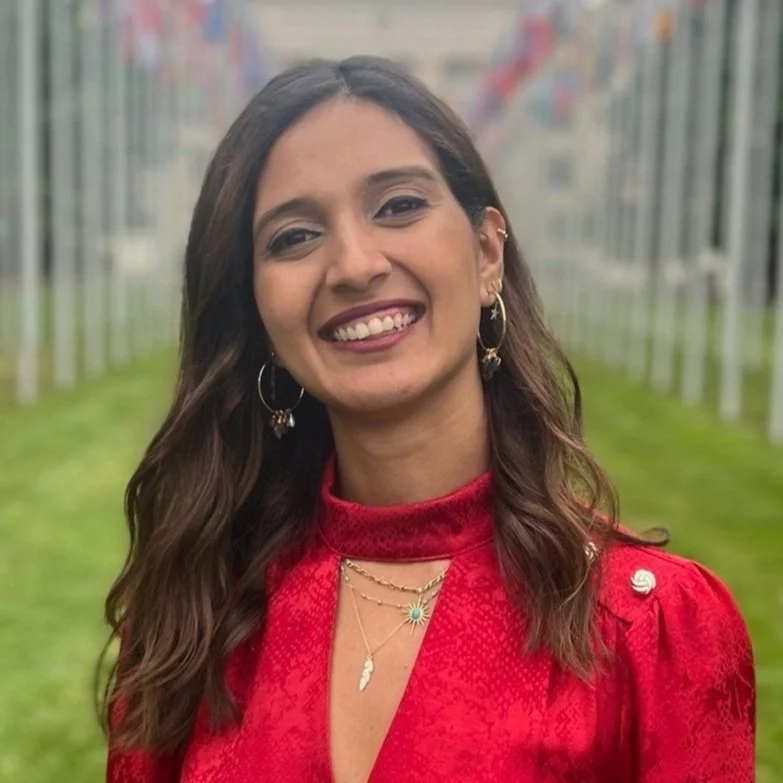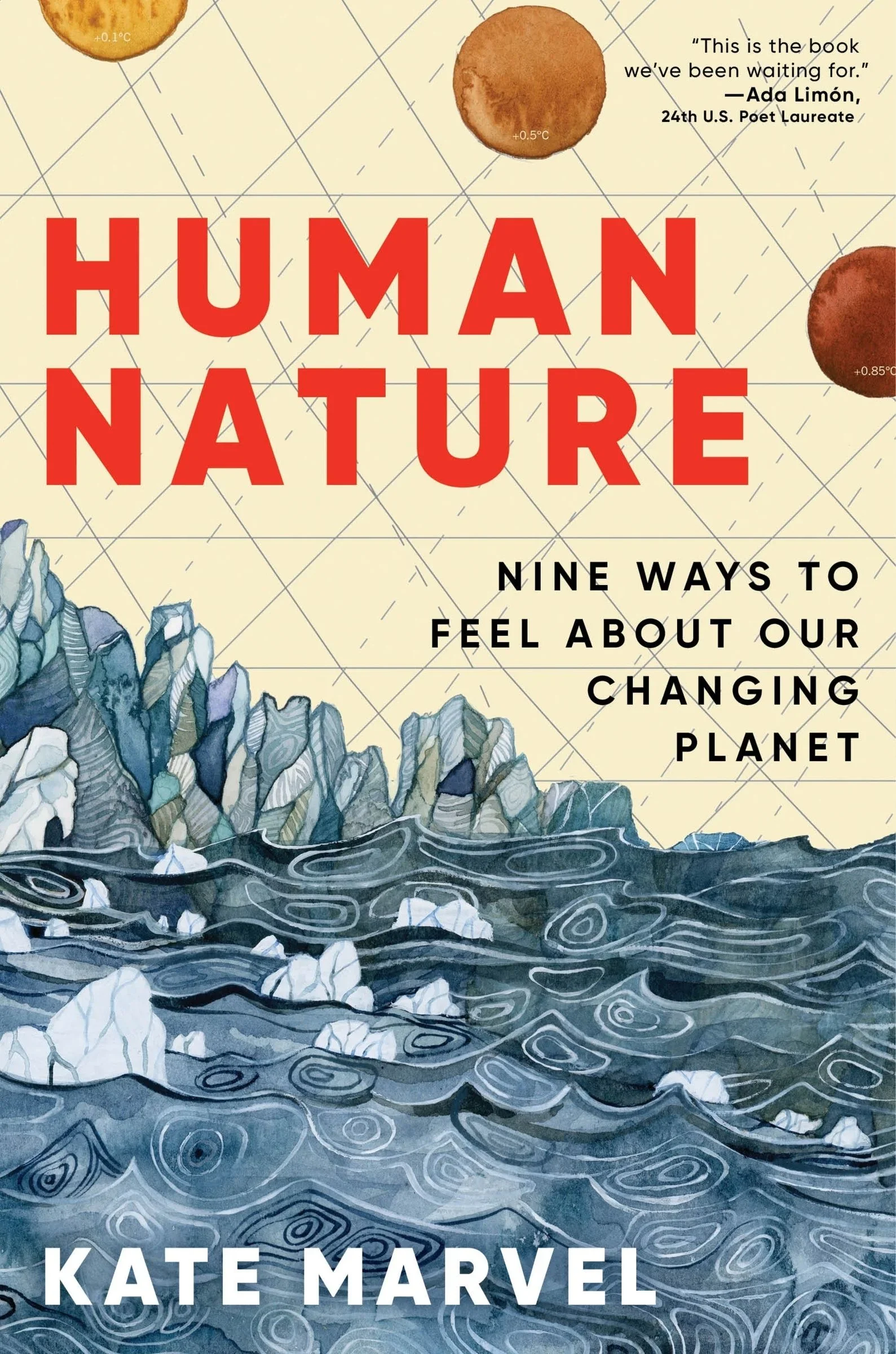Event Co-Chairs
Ann Kurth, PhD, CNM, MPH
President, The New York Academy of Medicine
Jodi Sherman, MD
Director, Yale Program on Healthcare Environmental Sustainability
Speakers
Komal Bajaj MD, MS-HPEd
Medical Director of Sustainability, NYC Health + Hospitals; Chief Quality Officer, NYC Health + Hospitals/Jacobi/NCB
Komal Bajaj, MD, MS-HPEd is Chief Quality Officer at NYC Health + Hospitals/Jacobi | North Central Bronx, where she catalyzes quality improvement transformation across healthcare delivery. She also serves as Medical Director of Sustainability for NYC Health + Hospitals and is a Professor of Obstetrics & Gynecology at Albert Einstein College of Medicine. Dr. Bajaj is an internationally recognized physician leader who transforms complex healthcare challenges through human-centered, technology-driven approaches. Her innovative work has uplifted clinical care in a variety of practice environments and has resulted in millions in savings annually. She is known for creating practical solutions in simulation-based quality improvement and operations that have been implemented in healthcare systems worldwide. A board-certified OBGYN and reproductive geneticist, Dr. Bajaj trained at Northwestern University’s Feinberg School of Medicine and Albert Einstein College of Medicine. Her work has been featured in outlets such as the New York Times, NPR, NEJM Catalyst, JAMA Health Forum, and BMJ Quality and Safety. She is a Fellow of the New York Academy of Medicine and Becker’s 2024 “Patient Safety Expert to Know.”
Paul Biddinger, MD
Chief Preparedness and Continuity Officer, Mass General Brigham
Dr. Paul Biddinger is the Chief Preparedness and Continuity Officer at Mass General Brigham (MGB) and the Chief of the Division of Emergency Preparedness in the Department of Emergency Medicine at MGB. He holds the Ann L. Prestipino MPH Endowed Chair in Emergency Preparedness and is also the Director of the Center for Disaster Medicine at Massachusetts General Hospital (MGH). Dr. Biddinger additionally serves as the Director of the Emergency Preparedness Research, Evaluation and Practice (EPREP) Program at the Harvard T. H. Chan School of Public Health and holds appointments at Harvard Medical School and at the Chan School.
Dr. Biddinger is an active researcher in the field of emergency preparedness. He has authored numerous articles and book chapters on multiple topics related to disaster medicine and emergency medical operations and has responded to numerous prior disaster events, including Hurricane Katrina, Superstorm Sandy, the Boston Marathon bombings, the Nepal earthquakes, and many others.
Özlem Ergun, PhD
Distinguished Professor of Mechanical and Industrial Engineering, Northeastern University
Dr. Özlem Ergun is a College of Engineering Distinguished Professor and the Associate Chair for Graduate Affairs in Mechanical and Industrial Engineering at Northeastern University. Dr. Ergun has applied her research on network design, management, and resilience to problems arising in many critical systems including transportation, pharmaceuticals, and healthcare. She has worked with organizations that respond to emergencies and humanitarian crises around the world, including USAID, UN WFP, UNHCR, IFRC, OXFAM America, CARE USA, FEMA, USACE, CDC, AFCEMA, and MedShare International. Dr. Ergun served as a member of the National Academies Committee on Building Adaptable and Resilient Supply Chains after Hurricanes Harvey, Irma, and Maria and as a member of the National Academies Committee on Security of America’s Medical Supply Chain. Dr. Ergun received her B.S. degree from Cornell University and Ph.D from the Massachusetts Institute of Technology. She is a Fellow of INFORMS since 2023.
Andrew Fanning, PhD
Research & Data Analysis Lead, Doughnut Economics Action Lab
Andrew Fanning is an ecological economist exploring how to move our interconnected societies towards the goal of meeting the needs of all people within the means of the living planet. Andrew is Research & Data Analysis Lead at Doughnut Economics Action Lab, and a Visiting Research Fellow at the University of Leeds (UK) and the University of Cadiz (Spain). His research has been published in leading scientific journals, such as Lancet Planetary Health and Nature Sustainability, and he leads the ongoing development of an interactive website entitled 'A good life for all within planetary boundaries', which makes indicators tracking the social shortfall and ecological overshoot of countries visible and widely accessible.
Martin Hensher, PhD, MSc
Henry Baldwin Professorial Research Fellow in Health Systems Sustainability, Menzies Institute for Medical Research, University of Tasmania
Martin Hensher has degrees from the University of Oxford, the London School of Economics and Political Science, and a PhD from the Menzies Institute. He has over thirty years’ global experience in health economics, planning and financing gained as a civil servant and a researcher in the UK, Central Asia, South Africa and Australia.
Martin’s research focuses on integrating the economic, environmental, and societal dimensions of improving the sustainability of health care systems. His work integrates health economics with ecological economics to answer questions including climate change mitigation and adaptation for healthcare systems; the future of healthcare in a post-growth economy; and overconsumption and diminishing marginal returns in healthcare. He is co-lead of the Lancet Commission on Sustainable Healthcare Working Group 4 on Health System Transformation, and a member of WHO’s Technical Advisory Group on the Economics of Environment, Climate and Health.
David Himmelstein, MD
Distinguished Professor of Public Health, City University of New York, Hunter College; Lecturer in Medicine, Harvard Medical School
David U. Himmelstein M.D. is a Distinguished Professor of Public Health at CUNY's Hunter College and a Lecturer in Medicine at Harvard Medical School. He graduated from Columbia University’s College of Physicians and Surgeons, completed a medical residency at Highland Hospital in Oakland, California, a fellowship in General Internal Medicine at Harvard. Prior to his move to CUNY he practiced and taught primary care internal medicine at the Cambridge Health Alliance/Harvard Medical School, and served as Chief of Social and Community Medicine there. He has authored or co-authored three books and more than 200 journal articles, including widely-cited proposals for single payer health care reform in the NEJM and JAMA, and studies of patient dumping (which led to the enactment of EMTALA law that banned that practice), the high administrative costs of the U.S. health care system, medical bankruptcy (co-authored with Elizabeth Warren), and the mortal consequences of uninsurance.
Manisha Juthani, MD
Commissioner, Connecticut Department of Public Health; Adjunct Professor, Yale School of Medicine
Manisha Juthani, MD, is the Commissioner of the Connecticut Department of Public Health (DPH). She is the first Indian American to serve as a commissioner in the State of Connecticut. She served as professor of medicine at Yale School of Medicine through September 2024 and currently serves as an adjunct professor of medicine. She served as Director of the Infectious Diseases Fellowship Program from 2012 to 2021. Juthani received her B.A. from the University of Pennsylvania and M.D. from Cornell University Medical College, completed Internal Medicine residency training at New York-Presbyterian Hospital/Weill Cornell campus, and served as chief resident at Memorial-Sloan Kettering Cancer Center. She came to Connecticut in 2002 as an Infectious Diseases fellow at Yale School of Medicine.
During the COVID-19 pandemic, Juthani was a leader in the COVID response at Yale which led to her appointment as Commissioner of CT DPH in 2021. In the early days of the pandemic, she was a voice to help educate the public in both local and national media outlets, a role she was able to expand in her role as Commissioner. Upon joining CT DPH, she helped guide Connecticut out of the pandemic and worked to revitalize areas of public health, such as gun violence, maternal health, opioid use, and sexually transmitted diseases, that were exacerbated during the pandemic.
As she continues in her role as DPH Commissioner, Juthani has shifted her core vision to “Preserve and Protect Core Public Health Principles and Services.” As Connecticut is presented with new public health challenges, she remains committed to preserving public health achievements made over the years, including improvements in regulatory oversight in healthcare, drinking water, and environmental health which includes food safety. It is more important than ever to highlight the importance of vaccines, control of infectious diseases, road safety, and healthier mothers and babies. Clear, accurate communication about public health risks is vital to her mission. She continues to advocate for health as a human right which is the core vision of CT DPH.
Nishaminy Kasbekar, BS, PharmD, CPEL, FASHP
Vice President and Chief Pharmacy Officer, University of Pennsylvania Health System
Nishaminy Kasbekar is the Vice President of Pharmacy Services and Chief Pharmacy Officer for Penn Medicine / University of Pennsylvania Health System in Philadelphia. Nish received her Bachelor of Science Degree in Pharmacy and her Doctor of Pharmacy Degree from the Philadelphia College of Pharmacy and Science. She then completed an ASHP PGY 1 residency in Pharmacy Practice and a PGY 2 Specialty Residency in Infectious Diseases at the Hospital of the University of Pennsylvania in Philadelphia.
Nish has practiced and had many roles in various areas of pharmacy practices. She has contributed to a number of publications, presented at national conferences and received numerous recognitions most notably an Honorary Doctorate degree from St Joe’s University last year, PSHP Pharmacist of the Year, Philadelphia Business Journals Top 40 individuals under the age of 40, ASHP Best Practice Award, Pennsylvania Health System Pharmacists Joe E Smith Award, Delaware Valley Society of Health Systems Pharmacists Jonathan Roberts Award, University of the Sciences Young Alumnus Award and placed in the American Druggist’s List of Top 50 Most Influential Pharmacists and Becker’s Top 75 Chief Pharmacy Officers to Know List.
Nish is the Immediate Past President of the American Society of Health System Pharmacists and currently on the ASHP Board of Directors. She has held the following leadership positions, Board of Directors for ASHP, President of the PPA Educational Foundation, Chair of the Vizient Practice Advancement Committee, ASHP Women in Pharmacy Leadership Steering Committee, ASHP Chair of the Council on Pharmacy Practice, and AJHP Editorial Board. She is also a ASHP Certified Pharmacy Executive Leaders, Fellow of ASHP and a Past President of the Pennsylvania Society of Health Systems Pharmacists and Delaware Valley Society of Health Systems Pharmacists. She has also represented Pennsylvania in the ASHP House of Delegates for 8 years. Her passion for advancing pharmacy practice is evident in her daily interactions with providers, pharmacists and students.
Margaret E. Kruk, MD, MPH
Director, QuEST Center; Distinguished Professor of Health Systems and Medicine, Division of General Medicine & Geriatrics, Department of Medicine, Washington University School of Medicine
Dr. Margaret E. Kruk is Professor of Health Systems at the Harvard T.H. Chan School of Public Health. Dr. Kruk studies how health systems perform in improving health and generating trust across countries. Working with colleagues in Africa, India, South America, and Europe, she develops novel measures of health system quality and measures how system performance affects population demand for health care, health outcomes, and confidence. Dr. Kruk and her team use implementation science and econometric methods to design and evaluate large-scale health system reforms.
Dr. Kruk is Director of the QuEST Centers and Network, a multi-country research consortium working to produce a global evidence base for improving health systems. The QuEST Network responds to the findings of the Lancet Global Health Commission on High Quality Health Systems in the SDG Era (HQSS Commission), a global initiative chaired by Dr. Kruk. QuEST develops new instruments to assess health system quality, tests structural solutions to health system deficits, and supports expansion of high-impact health systems research in partner countries.
Prior to Harvard, Dr. Kruk was Associate Professor of Health Policy and Management and Director of the Better Health Systems Initiative at Columbia University. Previously, she was Assistant Professor of Health Management and Policy at the University of Michigan. She has held posts at the United Nations Development Program and McKinsey and Company and practiced medicine in northern Ontario, Canada. She holds an MD degree from McMaster University and an MPH from Harvard University.
Thomas Leyden, MBA
Director, Value Partnerships Programs, Blue Cross Blue Shield of Michigan
Tom Leyden has over 30 years of experience in performance transformation and healthcare consulting and has presented both nationally and internationally on his programs. As Director of Blue Cross Blue Shield of Michigan’s award-winning Value Partnerships program, he oversees a portfolio of over 50 statewide quality improvement programs that are tied to value-based reimbursement opportunities for Michigan’s provider community. The Value Partnerships programs are internationally recognized, having been profiled in over 35 countries on five continents and have prevented an estimated $6.3 billion in health expenses. Mr. Leyden has been published in a variety of peer reviewed literature including Harvard Business Review and the New England Journal of Medicine Catalyst Innovations in Care Delivery. In 2020, Tom was the national recipient of the Primary Care Community Leadership award from the Washington DC-based Primary Care Collaborative. Tom received his BA from Michigan State University and an MBA from Wayne State University.
Melanie Marino, PhD Candidate
Civil and Environmental Engineering, Northeastern University
Melanie Marino is a PhD candidate in the Civil and Environmental Engineering Department at Northeastern University, holding an MS in Engineering and Public Policy. Her research focuses on health sector sustainability, examining the complex interdependencies between the health sector, the environment, and public health outcomes. She has collaborated on international projects with the Lancet Countdown on Health and Climate Change, conducted life cycle assessments of medical products and procedures, and led research exploring plastic use and pollution in healthcare. Her work combines industrial ecology methods with policy analysis to advance sustainability and resilience in the health sector. She aims to support the transformation of the sector to promote health and deliver effective care within the planet’s ecological boundaries.
Jenny McColloch, MBA, MS
Vice President of Sustainability and Community Impact, CVS Health
Jenny McColloch serves as Vice President of Sustainability and Community Impact at CVS Health, leading the company’s Healthy 2030 Impact Strategy. Her work centers on improving health outcomes in communities nationwide through strategic partnerships with nonprofit organizations, and supporting initiatives that tackle food insecurity, expand educational opportunities in various aspects of health care, and empower colleagues to engage meaningfully in their communities. Under her leadership, CVS Health is also working to reduce environmental impacts, drive efficiencies, and build resilience in the face of extreme weather.
Before joining CVS Health, Jenny was the Chief Sustainability and Social Impact Officer at McDonald’s Corporation, guiding environmental and social impact strategies across more than 40,000 restaurant and agricultural communities worldwide. Her career reflects a deep commitment to the intersection between the private sector, community impact and environmental stewardship. She received her BS/MS from Stanford University and MBA from the Yale School of Management.
Lisa Patel, MD, MESc, FAAP
Executive Director, Medical Society Consortium on Climate and Health
Lisa Patel, MD, is Executive Director of the Medical Society Consortium on Climate and Health and Clinical Associate Professor of Pediatrics at Stanford School of Medicine. A former Presidential Management Fellow at the Environmental Protection Agency, she coordinated U.S. government efforts on clean air and safe drinking water in South Asia with the World Health Organization, earning the Trudy A. Specinar Award. She serves on the Executive Committee of the American Academy of Pediatrics’ Council on Environmental Health and Climate Change and the boards of Our Children’s Trust and Undaunted K12. She is also a Commissioner for the National Commission on Climate and Workforce Health and a Science Mom. A nationally recognized expert on climate change and health, her work has been featured in the New York Times and LA Times, among others.
Narasimha Rao, PhD
Professor of Energy Systems, Yale School of the Environment; Senior Research Scholar, International Institute for Applied Systems Analysis
Narasimha D. Rao is a Professor of Energy Systems at the Yale School of the Environment. His research examines the relationship between energy systems, human wellbeing and climate change. His project Decent Living Energy quantifies the energy needs and climate impacts of eradicating poverty around the world. His current focus is on investigating the barriers to household electrification and technology adoption in energy transitions around the world. He has served as a contributing author to the IPCC’s Sixth Assessment Report, and a Lead Author on UN Emissions Gap Report 2023. He has testified at a Congressional House Sub-Committee hearing, and served on multi-stakeholder panels at the UN Social and Economic Council. His work has been supported by the European Research Council, National Science Foundation, Environmental Protection Agency and other organizations. He is also a Senior Research Scholar at the International Institute for Applied Systems Analysis (IIASA). He received his PhD from Stanford University in Environment and Resources, and Masters in Technology Policy and Electrical Engineering from the Massachusetts Institute of Technology.
Fawzia Rasheed, PhD
Climate and Environment Lead, Aga Khan Health Services; Professor, London School of Hygiene and Tropical Medicine; Member, Lancet Commission of Sustainable Healthcare
Fawzia Rasheed focusses on supporting climate financing and health organizations to align with climate resilience, decarbonization strategies, and ESG mandates. She supports capacity building to anticipate and reduce risk and identify high-impact, cost-effective interventions. She leads the Aga Khan Health Services' decarbonization work across 7 countries, where she conceptualized and co-developed a carbon emissions evaluation and management tool now endorsed by WHO. Her team has provided training to representatives of Ministries of Health and the Environment in over 60 countries; as well as over 80 country-based WHO staff. Fawzia is a professor at the London School of Hygiene and Tropical Medicine; a commissioner, for the Lancet Commission on Sustainable Health Care; and represents the NGO constituency for the Aga Khan Health Services on the governing body of the Alliance of Transformative Action on Climate and Health (+90 governments and +80 technical partners). She is a member of the Expert Group of the World Bank-led initiative to establish 'Best Buys' in Climate and Health.
Madhury Ray, MD, MPH, CEM
Paul Farmer Fellow in Anti-Racism and Preventive Medicine, NYC Health Department; Visiting Scientist, Yale Humanitarian Research Laboratory
Madhury (Didi) Ray, MD, MPH, CEM’s work centers climate and health as the inaugural Paul Farmer Fellow in Anti-Racism and Preventive Medicine at the New York City Health Department and a Visiting Scientist at the Yale Humanitarian Research Lab. Her previous projects represent innovations in equitable public health emergency management, from inventing a novel, participatory method to define disaster risk to designing NYC's first hyperlocal emergency response. She completed a medical degree from Drexel University and a Masters in Public Health from the Harvard T.H. Chan School with a specialization in Global Health and a concentration in Humanitarian Studies. Additionally, Dr. Ray is a Certified Emergency Manager and a Copello Fellow in Health Advocacy with Doctors for America. Dr. Ray counts her time as a Fulbright Scholar in Ukraine during the Orange Revolution as one of her most formative experiences. She is one of 2021's 40 Under 40 Rising Leaders in Public Health.
Andrew M. Ryan, PhD
Professor Health Services, Policy, and Practice, Brown University School of Public Health; Founding Director, Center for Advancing the Study of Healthcare, Brown University
Andrew Ryan, Ph.D. is Professor of Health Services, Policy, and Practice and the founding director of the Center for Advancing the Study of Healthcare at Brown University. Dr. Ryan’s research focuses on the forces that shape the value and affordability of health care in the United States. Dr. Ryan has performed extensive work evaluating national programs designed to improve the quality and value of health care by changing the incentives faced by hospitals, physician practices, Accountable Care Organizations, and Medicare Advantage plans. Much of this work has involved detailed econometric analysis of longitudinal data. Through Dr. Ryan's participation on national technical expert panels and steering committees he has also developed a deep understanding of the policy issues related to the use of financial incentives to improve health care spending value in the U.S. Prior to his appointment at Brown, Dr. Ryan was a professor at the University of Michigan.
Umair A. Shah, MD, MPH
Founder & CEO, Rickshaw Health; Adjunct Faculty, Columbia University Mailman School of Public Health; Former Secretary of Health, Washington State
Dr. Umair A. Shah is a physician, public health leader, and expert in health transformation with more than two decades of experience bridging healthcare and public health. He most recently served as Secretary of Health for Washington State, where the agency received national recognition for its work in innovation, strategic partnerships, and public health communications.
Previously, Dr. Shah led Harris County Public Health in Texas - the health department for the nation’s third-largest county - where his leadership earned national honors, including recognition as Local Health Department of the Year. He also served as president of the National Association of County and City Health Officials (NACCHO), representing more than 3,000 local health departments across the country. During his time in Texas, he spent two decades as an emergency physician in the VA health system, deepening his expertise in clinical care and crisis response.
Now based in the Seattle area, Dr. Shah holds faculty appointments at the University of Washington, Washington State University, Baylor College of Medicine, and the University of Texas. He is the founder of Rickshaw Health, a consultancy advising health agencies and leaders on strategy, innovation, and systems change. His leadership is grounded in his Asian American heritage, Midwestern upbringing, and Texas roots - values that continue to shape his commitment to resilience, excellence, and meaningful impact in health.
Ashwin Vasan, MD, PhD
Senior Fellow, Health Policy and Global Affairs, Yale School of Public Health; Healthcare Advisor, Commonweal Ventures
Ashwin Vasan, MD, PhD is a practicing physician, epidemiologist, and public health leader whose work over the last twenty years spans government, academia, and nonprofit service. As New York City’s health commissioner and senior public health advisor from late 2021 through 2024, he led the city’s recovery from COVID-19, launched the ambitious HealthyNYC initiative to restore life expectancy, and advanced youth mental health with NYC TeenSpace, a tele‑therapy service which has now enrolled nearly 40,000 NYC teens into licensed therapy. During his tenure the Health Department launched its interdisciplinary Climate and Health program focused on mitigating and adapting to the impacts of extreme heat, extreme rain and flooding, air quality, and vector borne diseases, and made healthcare affordability a major focus, launching an initiative to cancel $2B in medical debt for 500,000 low income New Yorkers, and creating the first municipal Office of Healthcare Accountability, promoting hospital price transparency. He previously served as president and CEO of Fountain House, scaling the organization’s national impact on serious mental illness, and spent the first decade of his career working on global HIV/AIDS treatment with Partners In Health and the World Health Organization. Dr. Vasan is currently on the faculty of Yale School of Public Health and Jackson School of Global Affairs as a Senior Fellow, and has also recently held fellowships at Harvard as a Menschel Fellow and Meharry as the James McCune Smith Distinguished Fellow. He focuses much of his time on health technology, serving as an Advisor to Commonweal Ventures, an early stage fund focused on public policy impact. Dr. Vasan holds degrees from UCLA, Harvard, the University of Michigan, and the London School of Hygiene & Tropical Medicine.
Chris Webb, MEng
Group Head of Climate and Nature, Bupa
Chris is currently the Group Head of Climate and Nature at Bupa, a global healthcare company caring for over 50 million customers. His work spans right across the organization to both reduce Bupa’s impact on the environment and regenerate the health of our planet in ways that make people healthier too.
Prior to Bupa Chris has worked in various sustainability roles for almost 20 years, most recently at HSBC where he was the Global Head of Carbon Markets, and the Head of Sustainability for Europe. He has also worked at the environmental NGO The Nature Conservancy, where he held a number of regional and global roles related to climate and nature, and prior to this worked at PwC in their climate change consulting team supporting both private and public sector clients around the world.
Moderators
Joe Bialowitz, MS, MSc
Associate Director, Sustainability, Memorial Sloan Kettering Cancer Center
Joe Bialowitz is a nationally recognized leader in healthcare sustainability, driving transformative change at the intersection of environmental health and patient care. At Memorial Sloan Kettering Cancer Center, Joe spearheads initiatives to reduce cancer risk by eliminating carcinogens from care delivery and to improve patient outcomes by tackling environmental threats—such as extreme heat and air pollution—that disrupt diagnosis and treatment.
With over two decades of experience, Joe has been at the forefront of efforts to decarbonize healthcare and build resilience to climate-related risks. At Kaiser Permanente, he pioneered the organization’s annual greenhouse gas and climate risk disclosures and co-led major pollution-reduction strategies that strengthened operational resilience. Joe has also led consulting teams that developed the first Scope 3 emissions reduction toolkit tailored for healthcare providers and partnered with leading health systems to craft actionable decarbonization roadmaps and assess climate vulnerabilities across facilities and patient populations.
Iris Martine Blom MD, PhD
Research Consultant, London School of Hygiene & Tropical Medicine; Lancet Commission on Sustainable Healthcare
Dr. Iris Blom is a medical doctor and climate-health researcher whose work bridges science, policy, and intergenerational leadership. She recently completed her PhD at the London School of Hygiene and Tropical Medicine, examining greenhouse gas mitigation in healthcare systems and its links to climate adaptation in Kenya. A Schwarzman Scholar with a master’s in Global Affairs from Tsinghua University, she brings a transdisciplinary approach to climate and health.
Iris serves as Penholder of the Pan-European Commission on Climate and Health at WHO/Europe, co-chairs the Resilience Working Group of the Lancet Commission on Sustainable Healthcare, and is a Research Consultant for the Pathfinder Commission 2.0. She has co-authored flagship reports and peer-reviewed publications shaping global climate-health governance.
With over a decade in global health, she has led youth engagement, helped establish the WHO Youth Council, and advocated at the World Health Assembly, UNFCCC COP25–COP29, and the UN Youth Climate Summit.
Matthew Eckelman, PhD
Professor of Civil and Environmental Engineering, Northeastern University
Dr. Matthew Eckelman is a professor of civil and environmental engineering at Northeastern University and an adjunct professor at the Yale School of Public Health. He has led several national and international studies of national healthcare emissions and resulting public health impacts and has published numerous articles and tools on life cycle assessment and sustainability in clinical care, drugs, and devices. Dr. Eckelman is a member of the Lancet Countdown on Health and Climate Change and was an analyst for the UK National Health Service developing long-term strategies and implementation plans for health care supply chain decarbonization. He holds a doctorate in chemical and environmental engineering from Yale University.
Omnia El Omrani, MD
Vice Chair, Global Climate and Health Alliance; Commissioner, Pan-European Commission on Climate and Health; Co-Chair of Equity Working Group, The Lancet Commission on Prevention of Viral Spillover
Dr. Omnia El Omrani is the Vice-Chair of the Global Climate and Health Alliance and an Egyptian medical doctor. She was the first official Youth Envoy to the Egyptian Minister of Foreign Affairs and COP27 President and was then appointed as the COP28 Health Envoy. She completed a Master of Public Policy at the University of Oxford. She is a Commissioner at the Pan-European Commission on Climate and Health. She serves as the co-lead of the Equity Group of the Lancet Commission on Prevention of Viral Spillover. She also serves on two other Lancet Commissions on Sustainable Healthcare and Global Governance on Health. She was selected as Apolitical's 50 Gender Equality Gamechangers in 2024 and Fast Company ME recognized her as one of the 35 Most Creative People in Business in 2023. She was awarded the 2023 Women of the Future, 50 Rising Stars in ESG.
She is serving as a member of the TED Countdown Vision Council and the Collective Minds Council. She was a member of the first Youth Sounding Board of the European Union DG-INTPA, an associate at Women Leaders for Planetary Health, and a member of the UNICEF-Az Youth Leaders Program and New York Times Generation Climate Cohort. She has more than 7 years of experience working on climate change and health, has published 31 research papers and delivered over 120 hours of climate training in 15 countries.
Katie Huffling, DNP, RN, CNM, FAAN
Executive Director, Alliance of Nurses for Healthy Environments
Dr. Katie Huffling is a Certified Nurse-Midwife and the Executive Director of the Alliance of Nurses for Healthy Environments (ANHE), the leading global nursing organization focused on the intersection of human and planetary health. With ANHE, Dr. Huffling works with nurses and nursing organizations to elevate environmental health issues, such as climate change, toxic chemicals, and sustainability in healthcare, amongst the nursing profession. Dr. Huffling is a passionate supporter of nurse led advocacy in support of healthier environments for all.
Dr. Huffling received her DNP in Health Innovation and Leadership from the University of Minnesota. She is an appointed member of the US Environmental Protection Agency Children’s Health Protection Advisory Council and is a member of the National Academy of Medicine’s Action Collaborative on Decarbonizing the U.S. Health Sector. She was a recipient of the 2018 Charlotte Brody Award which is is given to a nurse whose story of environmental activism and accomplishment reflects a significant contribution to environmental health.
Andrea MacNeill, MD, MSc, FRCSC
Associate Professor of Surgery and Director, Planetary Healthcare Lab, University of British Columbia; Co-chair, Lancet Commission on Sustainable Healthcare
Dr Andrea MacNeill is a Surgical Oncologist in Vancouver, Canada and a clinical associate professor at the University of British Columbia where she specializes in sarcoma and peritoneal malignancies. She is the founder and principal investigator of the UBC Planetary Healthcare Lab, an interdisciplinary research collaborative dedicated to creating health systems that promote both human and planetary health. She is the Medical Director of Planetary Health for Vancouver Coastal Health and an executive member of CASCADES, a pan-Canadian knowledge mobilization network dedicated to accelerating the transition to low-carbon, sustainable health systems in Canada. She is currently co-chairing a UBC/Yale-led Lancet Commission in sustainable healthcare.
Maya Prabhu, MD, LLB
Associate Professor, Yale School of Medicine; Associate Professor (Adjunct) of Law at Yale Law School; Associate Professor of the Environment (Courtesy)
Maya Prabhu is an Associate Professor (Adjunct) of Law at Yale Law School and an Associate Professor in the Department of Psychiatry at Yale School of Medicine. She obtained her MD from Dalhousie Medical School and completed adult psychiatry residency and a forensic psychiatry fellowship at Yale. Between medical school and residency, she graduated from the McGill Faculty of Law; she practiced corporate litigation at Davis Polk & Wardwell and was a Deputy Counsel with the Volcker Inquiry which investigated allegations of fraud and corruption in the U.N. Oil-for-Food-Programme.
As a Consulting Forensic Psychiatrist to the State of Connecticut, she testifies regularly in court and before the Psychiatric Security Review Board. She consults with legal organizations on the psychological impact of advocacy. Her research areas of interest include refugee health, forensic psychiatry, climate migration, and issues at the nexus of health and international law.
Rebecca Weston, JD, LCSW
Co-Executive Director, Climate Psychology Alliance
Rebecca Weston, JD LCSW, lives in Brooklyn and is a practicing clinician and Co-Executive Director, of the Climate Psychology Alliance of North America. She has helped guide the organization from a small clinical group to one that includes over 750 clinicians seeking to resource their insight and skills in service of the climate movement and front and fence line climate communities and impacted professions. She speaks frequently about the psychological and mental health aspects of the climate crisis, trauma-informed climate journalism, and more recently, the relationship between climate change and authoritarianism. In her clinical practice, her focus is on attachment and trauma, and her work is informed by a recognition that our sense of self, connection, and agency are powerfully influenced by both internal and systemic aspects of our lives.
Featured Authors
Kate Marvel, PhD
Climate Scientist and Science Communicator
Kate Marvel is a climate scientist and one of the premier science communicators working today. A former cosmologist, Marvel received a PhD in theoretical physics from Cambridge University. She led the “Climate Trends” chapter in the U.S. Fifth National Climate Assessment, has given a TED Talk, appeared on Meet the Press and The Ezra Klein Show, and testified before the U.S. Congress. She has written for Scientific American, Nautilus magazine, and the On Being Project. She lives in Brooklyn with her family.
Kim Stanley Robinson
Science Fiction Writer
Kim Stanley Robinson is an American science fiction writer. He is the author of more than twenty books, including the international bestselling Mars trilogy, and more recently New York 2140, Aurora, Shaman, Green Earth, and 2312, which was a New York Times bestseller nominated for all seven of the major science fiction awards—a first for any book. A prolific writer and speaker, his work has appeared in The New York Times, The Washington Post, Newsweek, Nature, and Wired, and he has lectured at more than one hundred institutions over the last 25 years. His novel, The Ministry for the Future, was selected as one of Barack Obama’s Favorite Books of 2020 and one of Bill Gates’ “5 Great Books for the Summer” in 2022. The New York Times named both The Ministry for the Future and Aurora as two of “The Ten Best Books of the 21st Century.”

